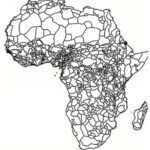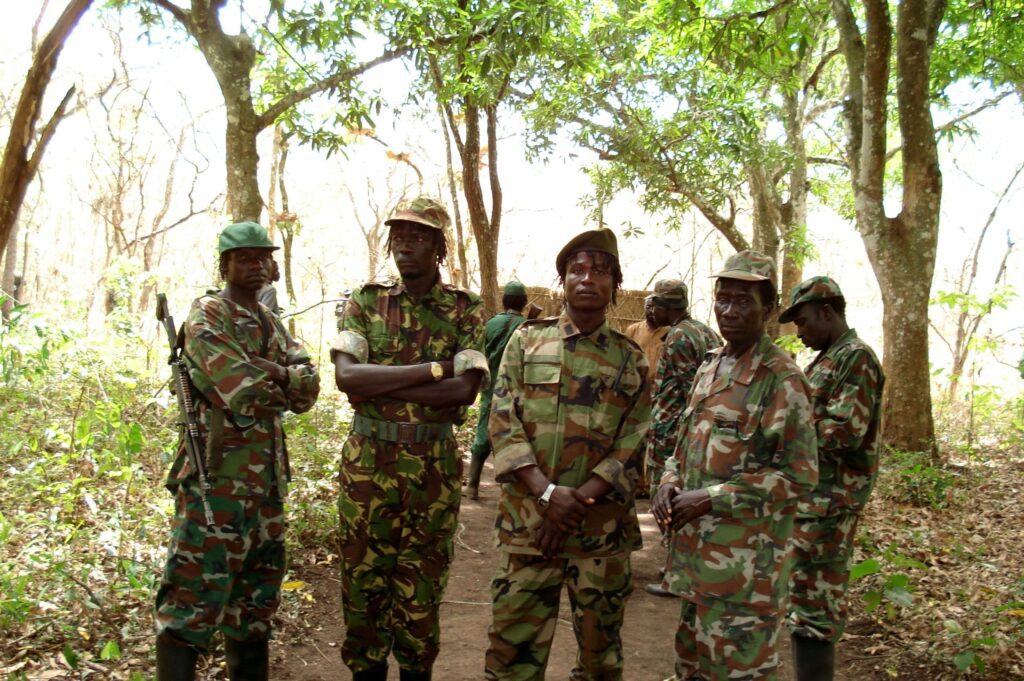Dozens of fighters affiliated with the terror group the Lord’s Resistance Army (LRA), including individuals involved in grave offenses, have been repatriated to Uganda alongside some of their abducted spouses. Upon their return, these individuals are granted amnesty. The successful execution of this covert and contentious mission in recent weeks was facilitated by the efforts of Pax, a Dutch peace organization. Marianne Moor (57), a staff member of Pax who spearheaded the operation, states, “We undertook this endeavor in pursuit of reconciliation and the establishment of peace.”
In a remote region of the Central African Republic, where a cocktail of rebel groups hold sway, Moor had to navigate through rivers in order to reach the LRA fighters and establish trust with them. The fighters expressed their desire to leave, as they were weary of living in the bush and saw limited prospects for their children in the CAR. Moor explains, “They were very tired of bush life and there was little future for their children in the CAR.” Pax, which had previously engaged with the LRA in an attempt to initiate a peace process, took decisive action. “We had to consistently mediate between the governments of Uganda, CAR, and Congo to facilitate the implementation of our plans. As a result, we successfully facilitated the safe evacuation of a total of 160 individuals.”
Dating back to the late 1980s, the LRA is one of the most murderous groups Africa has seen in the past half century. The group kidnapped tens of thousands of children in Northern Uganda, looted, cut off lips and brutally killed civilians. An estimated 100,000 northerners were killed in the war and two million civilians were displaced. At the beginning of this century, the LRA had been virtually expelled from Uganda and settled in Congo. The group made itself heard there again in 2008 when the LRA massacred hundreds of churchgoers during Christmas. Then it became too hot under their feet in Congo and the remaining fighters moved to the CAR.
Reconciliation ceremony
LRA figher in 2006. Photo Petterik Wiggers
Near the remote towns of Zemio and Boki along the Mbomou River, two LRA units of approximately a hundred men established themselves. Their looting activities were primarily conducted in Congo, across the river, with the stolen goods being directed to their leader Joseph Kony, who is currently in hiding in Sudan. However, following their disassociation from Kony in 2020, they ceased handing over the stolen goods to him and opted for an autonomous existence in the CAR, harboring a fear of ever returning to Uganda. Local officials allowed these LRA units, on the condition that they not loot or kill. They continued to plunder in Congo.
Amnesty International, a human rights organization, opposes the efforts of amnesty. According to Ruud Bosgraaf, a representative of the organization, “individuals involved in serious crimes should be subjected to legal proceedings”. However, the demobilized men in Uganda do not experience complete freedom. Instead, they are required to undergo an extensive process of truth-telling. Among the Acholi people of northern Uganda, the traditional approach to dealing with criminals does not involve courts and prisons. Instead, it entails elaborate ceremonies where guilt is acknowledged and compensation is arranged. One such ritual is known as mato oput, during which both the perpetrator and the victim consume a bitter juice and step on an egg. The egg symbolizes innocence, and by standing on it with bare feet, the perpetrator is transported back to their early youth when they were untainted by evil.
Moor states that “in the pursuit of reconciliation, the individuals will be required to attend multiple meetings in northern Uganda, the very region where their rebellion originated. During these gatherings, they will inevitably face their victims.”
Child soldiers
Pax repatriated both armed fighters and their abducted women and children. The question arises: does the pursuit of peace contradict the pursuit of justice, or punishment with reconciliation? According to Moor this dilemma is faced on a regular basis by any peace movement. After careful consideration, the safety of Northern Congo and the well-being of the kidnapped women and children were deemed more significant. Moor acknowledges that this moral decision is exceedingly challenging. The question remains: “What do you prioritize? That their demobilization will provide security for the Congolese population? But it also means that LRA fighters who committed war crimes receive amnesty from Uganda.”
Third from left: Dominic Ongwen during his days with LRA.
This operation must be extremely bitter for Dominic Ongwen, an LRA leader who was sentenced to 25 years in prison by the ICC for murder, rape and child abduction. He was unlucky not to have been given amnesty. “There are certainly people in the group that is now being granted amnesty who are suspected of crimes as serious as Ongwen, but have not been charged. And what they have in common with him is that they were also kidnapped at a young age, only later to develop into brutal LRA fighters,” says Moor.
With the desertion of these fighters, the LRA has thinned out. “There is only a small group left,” says Moor. “LRA leader Joseph Kony is staying in Sudan surrounded by a handful of women and children. They have survived by smuggling gold and wood, among other things. But the LRA no longer poses a threat.”
The destiny of the abducted women remains a pressing concern. The majority of the individuals referred to as their “wives,” who were part of the repatriating to Uganda of their own accord, were initially forcibly taken by the LRA combatants. “It might be presumed that these women would desire to reunite with their families in Congo. However, they express sentiments such as, ‘My spouse has consistently provided me with protection and taken good care of our children.”’ Conversely, some women endured the harrowing experience of being treated as slaves and subjected to abuse by the LRA, leading them to yearn for a return to Congo. They have been offered with the opportunity to do so.
This article was first published in NRC on 20-10-2023

